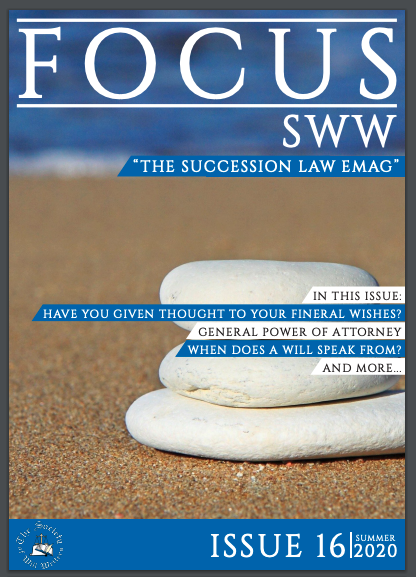From: The Kings Court Trust
Our friends at Kings Court Trust have put together an excellent article about Life Insurance Policies and Probate.
When a loved one dies and they have a life insurance or assurance policy, that policy may pay out a very significant sum. It’s only natural to question whether the payout forms part of their estate, which may be subject to probate, Inheritance Tax and other taxes, and also liable for any debts they may leave behind.
Does life insurance form part of the estate?
The short answer is, it depends on how the insurance policy was written but generally speaking life insurance payouts are not part of the deceased’s estate. Typically, they are made directly to beneficiaries named in the policy and so never come into or out of the deceased’s estate. But that does not mean that life insurance is not relevant to an estate and to probate.
In many cases, homeowners have life insurance policies in place to cover the value of their mortgage in case they die before it is repaid. In fact, many mortgage lenders require life insurance as a condition of lending. So, while they may not be part of an estate, life insurance policies are relevant because they can affect how much debt the estate carries. If a policy has been set up to repay the mortgage, then the value of the remaining mortgage debt may be cleared by the policy, leaving a larger estate to be distributed to the beneficiaries – and also a larger sum liable to Inheritance Tax.
Many couples elect to take out life insurance that covers the value of the mortgage for each person so that, should one die, the other is not left with the burden of meeting the mortgage payments on their own. If there is a surplus after the policyholder has died, that would normally pass to the estate, unless the policy was written in Trust and the Trustees have an option to direct the funds to other beneficiaries without going through the estate.
Life insurance can be written into a Trust so that when it pays out, either as a lump sum or as regular income, it does so from the Trust and not the estate, and is therefore normally exempt from any taxes, subject to HMRC approval. Life Insurance as part of an employer’s pension plan is often written this way.
So, it’s complicated. Life insurance policies can be written and held in a variety of ways that will determine what happens to the payout and it is important to contact the insurer to understand the details of the policy in question.
Are life insurance payouts subject to tax?
Generally speaking, life insurance payouts are not subject to any estate-related taxes, such as income tax or capital gains tax and, because they are not usually part of a deceased person’s estate, they are free from Inheritance Tax too. However, beneficiaries of any payouts will need to consider how they impact their own tax affairs and the value of their own estate in the future.
What happens to the payout if the named beneficiaries of a life insurance policy are themselves deceased?
If the named beneficiaries have themselves passed away, they may have left a Will outlining who should benefit. Where it is not clear, the insurance company, as Trustees of the policy, have the right to ask their own questions and to make a decision about who should benefit. That could mean a pay-out to the deceased’s estate, but not necessarily.
Who should I speak to about claiming on a life insurance policy?
In almost every case, the best contact on this subject is the insurance company with which the policy is held. You may already know about any policies, but if not, professional administrators, such as Kings Court Trust, may be able to conduct a search if you believe the deceased had a policy. It will then be a question of understanding the terms under which the policy was written.
Life insurance and a deceased person’s estate: what should you ask?
These questions may help you to understand what you are dealing with:
- How is the policy held? If it is written under Trust, confirm the Trustee details and provide a copy of the Trust Deed and/or relevant documents.
- Are the policy proceeds payable to the estate or to a Discretionary Trust or third party?
- If the proceeds are due to the estate, what is the total amount payable?
- Do you know of or can you provide the relevant chargeable events gains certificates for the period from the preceding 6 April to the date of death and for the prior tax year?
Could you do with some FREE, sound advice on:
- Writing a Will – What do I need and how much does it cost?
- Creating Lasting Powers of Attorney – If I was incapacitated who can act on my behalf?
- Property Protection Trusts – Can these really save Care Home Fees?
- Pre-Paid Funeral Plans – With so many to choose from how do I decide which plan is best?
There is so much confusion on these vital areas of estate planning, that sometimes just a chat with an expert in the field can clear up misunderstanding and set out the way ahead, without all the legal jargon.
Or complete the form below
Steve Worsfold
Affiliate Member of the Society of Will Writers
Advising on Wills/Trusts/Probate/Powers of Attorney

Mobile: 07734 744886
Office: 01903 533681
Email: steve@sussexwillwriters.co.uk
Website: www.sussexwillwriters.co.uk
Protecting What’s Precious to You,
Now and in the Future
Sussex Will Writers is proud to support Dementia Friends,
an initiative of The Alzheimers Society
Our business is certified ‘Safe to do business with’ and ‘Code compliant’
by the UK’s largest regulatory body for Will Writers, The Society of Will Writers.
Steve Worsfold has been an Affiliate Member of the Society for 15 years.
Sign Up to Receive our Free Newsletter
We send a Newsletter once a quarter and only occasional mailings to provide updates on changes in government policy or news of any special offers. You can download the latest version of our Newsletter by signing up with your name and email.

Sign Up to Receive our Free Newsletter
We send a Newsletter once a quarter and only occasional mailings to provide updates on changes in government policy or news of any special offers. You can download the latest version of our Newsletter by signing up with your name and email.






